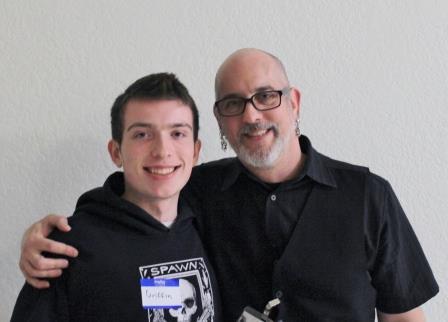By Kevyn Douglas Hay
Lake of the Woods is as distant in geographic location as it is as memory now. But it is a place where, as a small boy, I became one with the land, the water, and all things within them. I learned to swim, fish, paddle a canoe and start a fire; and when I dream of it now, I soar through the pines over granite cliffs as the aspens quake beneath me. At a very young age I witnessed, first hand, the effects of acid rain on the boreal forest at the southern edge of the Canadian Shield. In great blotches, like a pox upon the land, as marshes turned to bogs, entire generations of young trees died as the world seemed to change from green to orange. As far back as the 1970’s I recall my grandpa, a quiet and reserved man, scolding my dad for allowing us to wash ourselves in the lake. (Using soap and shampoo, and most likely conditioner as well.) It would be many years later until I understood the processes and politics of acid rain or the effects of excess phosphorus loads. But now I know.
All throughout the Johnson Creek Watershed we have opportunities to make physical connections to the land. We can put our hands in the soil and our feet in water of the place in which we live. This is where our collective past and future merge to create a mindful present. It is here we can engage with one another with respect and understanding. It is here that we find common ground. It is here that we can see the future results of the labor from our past. It is here that we live and it is here that we are. And this is why I am here.
The Johnson Creek Watershed Council is my conduit to the land, the water and all things within. The Council brings diverse people together, channeling each individuals gift toward achieving a common goal: Healing the land. (Which, in turn, will help us to heal ourselves.) To me, this is what gives the council meaning and why I have been volunteering since 2010. With JCWC I have the opportunity to go new places and see new things, to engage with community members and stakeholders and participate in building a stronger community for everyone. All of this while doing cool things like fresh-water mussel surveys, looking for salmon, or mining for blackberry roots in the caldera of an extinct volcano. Shoulder to shoulder, all of us together.
I’ve been asked about my ideal future for Johnson Creek. Of course, I would love for it to be a place for all things and all people. A thriving ecosystem and healthy habitat whose economic value is its intrinsic value, with a premium placed on its ecosystem services. Truth be told, my future of the creek is much more self-serving. I hope that my children will learn the lessons I have learned. And in doing so, develop and express their own love of the land while utilizing and passing down the skills and knowledge they have acquired through their experience with JCWC. And I look forward to the day when I can walk down to the creek and, as in the days of yore, pull a salmon out with a pitchfork. (Legally of course, after First Nation rights, and when fish populations can support it.)

